What’s the situation with safety in South Africa? We’re often asked whether a trip to South Africa is even safe. In all these years, we haven’t had any bad experiences in the country, but we do read scary stories that are quite frightening. For this reason, we wanted to share our own experiences with someone who can better assess the situation. After all, we only visit South Africa once or twice a year and often can’t accurately assess the current situation.
Tini (Insta profile) has been to South Africa several times for extended periods, studied in Durban, among other places, and has now lived in Cape Town with her husband (a native South African) for almost three years. She knows the country quite well, and that’s why we wrote this article with her on the topic of “Safety in South Africa.” We hope this information will help you plan your trip better. In the end, we don’t want to paint the devil on the wall, of course, but we would like to point out certain things.
What else you should know
- Best time to travel to South Africa
- Currency of South Africa
- South Africa Entry & Visa
- Round trip with a rental car
- Important travel insurance
- Garden Route South Africa
- Krüger National Park
- Panorama Route South Africa
- The beautiful Winelands
- The enchanting Northern Cape
- What else you should know
- Information from the Federal Foreign Office
- Safety tips for South Africa
- How safe are the big cities?
- Safety in Johannesburg
- Safety in Durban
- Safety in Cape Town
- Safety in traffic and on the roads
- Safety in South Africa: Corrupt police
- Talking with locals
- Conclusion on safety in South Africa
Information from the Federal Foreign Office
For a first impression of this topic, it’s worth taking a look at the Federal Foreign Office website. Here you’ll find many helpful tips and current information that could be crucial for your trip. No matter which country we travel to, we always check the travel advice on this very page first.
Safety Tips for South Africa
First-time tourists often worry about safety in South Africa. I would like to say that this is definitely justified; however, there are also many rumors surrounding this topic. It’s also important to differentiate, especially between major cities like Cape Town, Johannesburg, and Durban.
In general, and as in many other countries and cities around the world that don’t enjoy the luxury of European safety, you should simply adopt certain behaviors to move around safely in South Africa. Unfortunately, the idea of traveling carefree and relaxed through the country is rarely a good one.
- Be mindful, always and everywhere!
- If you notice that you are being watched, you should pay attention and show the person that you have noticed them (perhaps with a smile?)
- Don’t have too much cash in your pocket (recommendation: R 500) – cashless payment is possible almost everywhere
- Don’t carry your entire wallet with all your cards, ID, etc. (it’s better to leave it in the hotel – ideally lock it in a safe)
- Always close backpacks and bags and carry them in a way that no one else can access them (e.g., when queuing)
- Carry camera equipment with a strap around your wrist or neck
- Generally, do not display valuables openly
- Travel on foot or by public transport during the day, but use a taxi/Uber or rental car as soon as it gets dark
- Don’t leave valuables in your car; thieves can sometimes smash car windows take
- Generally try to avoid smaller streets or alleys in the metropolises
- Don’t necessarily travel alone, unless it’s a tourist area
- Don’t always believe/trust everything and everyone (e.g., you don’t have to give money to many parking attendants if they say so, unless they are employed).
- Park your car in guarded parking lots
- If you are traveling with a rental car, always keep the doors closed – even if you are sitting in the car while parked
- If you want to go hiking, you should ideally not do it alone and in well-known parks where there are many people
How safe are the big cities?
South Africa is definitely one of the most beautiful countries in the world, but you should still be particularly careful in the country’s big cities. You should be aware that there is a huge wealth gap in South Africa. Many millions People live without prospects, work, or money on the outskirts of the cities in the so-called townships. According to local newspapers, many tragedies (murders, assaults, robberies, thefts, shootings) take place in precisely these areas, in Cape Town, Johannesburg, and Durban.
So don’t be surprised by the high walls and fences of the accommodations, burglar-proof grilles, barbed wire, video surveillance, and (private) security personnel. As a tourist, you will mostly be unaware of all the tensions and horror stories. If something does happen, it’s usually assaults, break-ins, or thefts. These cases are, of course, anything but pleasant, but in the end, a stolen camera is easier to cope with than a physical altercation.
Safety in Johannesburg
We have been to Johannesburg three times so far and have witnessed a small change. 7 Years ago, we were advised to take a taxi, even for the shortest distances. Wandering around the streets alone was definitely not a good idea. Today, there are some areas where you can definitely go without a guide (e.g., Maboneng, Braamfontein, Melrose Arch). However, there are still many areas where crime is said to be very high (e.g., Yeoville, Hillbrow, townships, etc.). This is partly due to the fact that the city is still characterized by very strong social differences.
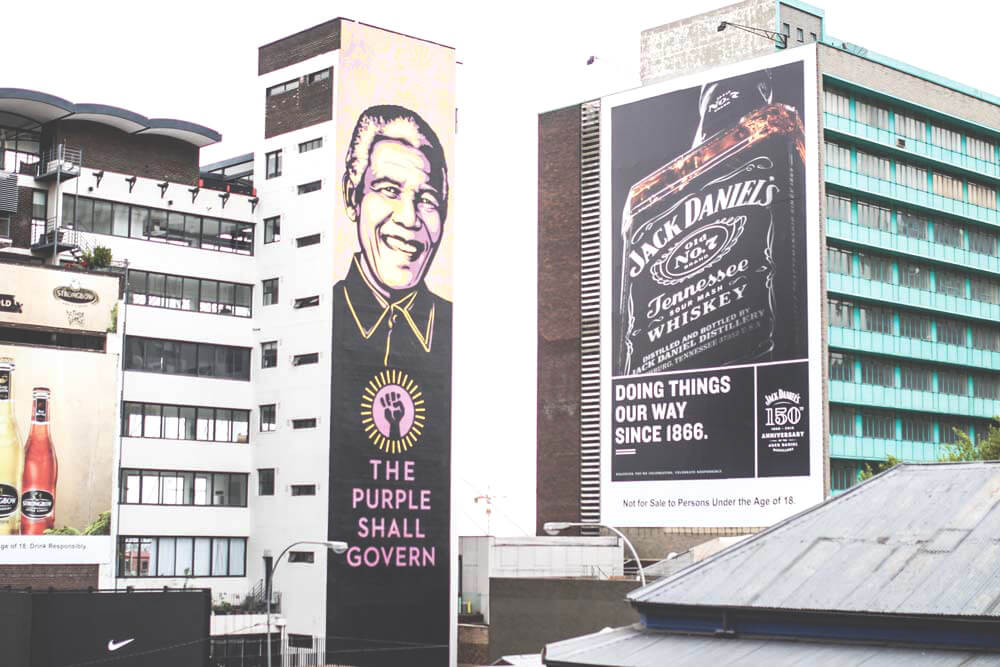
Our guide, Thabo (Curiocity Hostel) told us that as a tourist, You should know exactly where you can and can’t go. For this reason, we’ve only ever done guided tours. On the one hand, we learned a tremendous amount about the city, and on the other, we always felt very safe and saw a lot. In Johannesburg, we also almost exclusively travel from A to B by taxi or UBER.
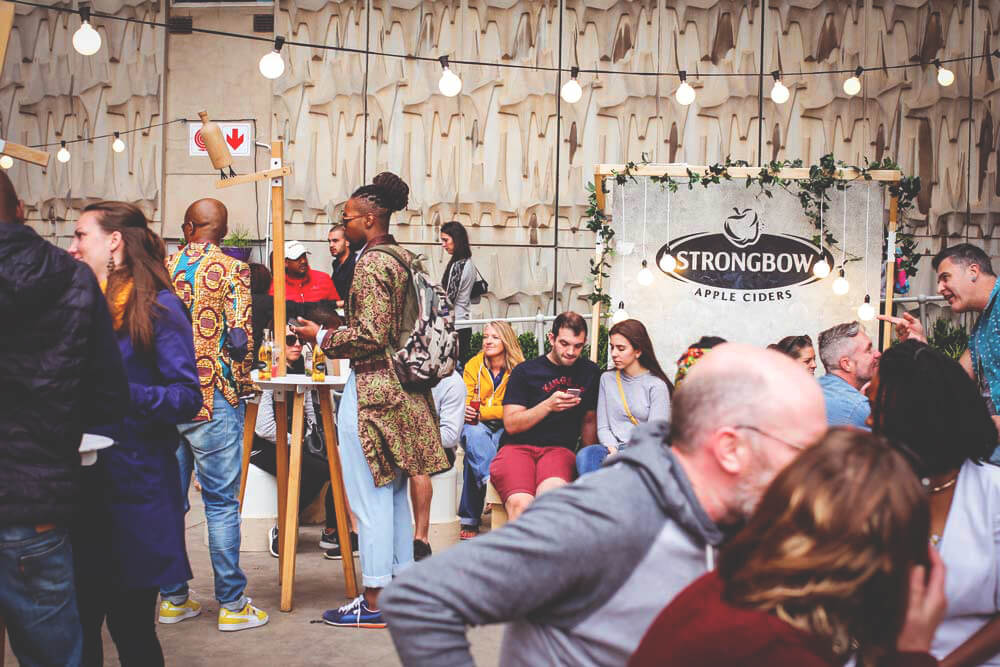
We recommend that you don’t wander through Johannesburg alone. Instead, join a group or take part in guided tours. You shouldn’t be out and about in this city at night anyway (and definitely not alone). As a “white” tourist, you’ll be quickly recognized and (potentially) become a target. It’s also advisable to be cautious at intersections, especially in the evening, when but you should travel by car. Car hijacking is very common.
Safety in Durban
Durban’s city center is best avoided on foot at all times. I (Tini) personally believe that you should only travel in Durban by car or Uber – even for short distances. When it gets dark, you shouldn’t necessarily walk alone, but rather in a group. Certain tourist spots should also be explored with caution, especially at night.
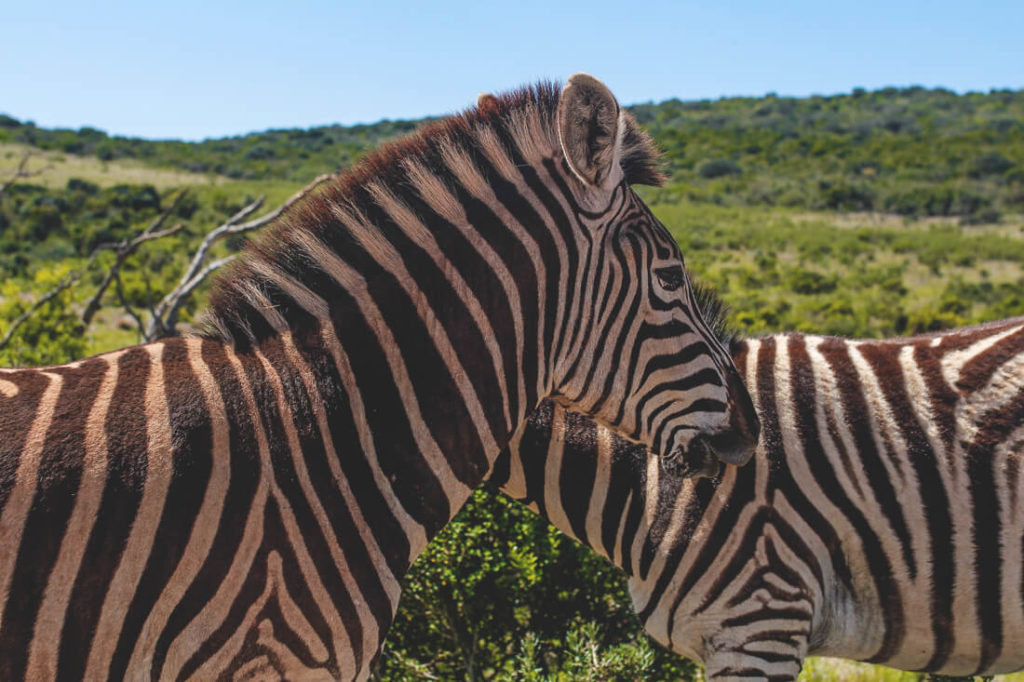
On my (Bolle) first trip to South Africa in 2013, I felt very uncomfortable in Durban. Guests Our hostel was robbed on our first day, and this naturally made us feel even more unsafe in this city. They also say here that you shouldn’t be out and about in the city after sunset (and especially not alone). As Tini already mentioned, you should take a taxi, even for short distances.
It’s best to stay on main roads and avoid side streets. Don’t wear valuable jewelry, and leave your valuables in the hotel (in the safe if possible). Only use ATMs in banks, not on the next street corner. These tips also apply to all other cities and should be taken seriously.
Safety in Cape Town
In Cape Town, you can be very safe on the streets during the day. However, you should stick to the shopping streets and tourist areas. Long Street, the famous bar street in Cape Town’s city center, is notorious for thefts. There You should be especially careful – especially if you’ve had one or two too many. Stolen cell phones and wallets are unfortunately commonplace there.
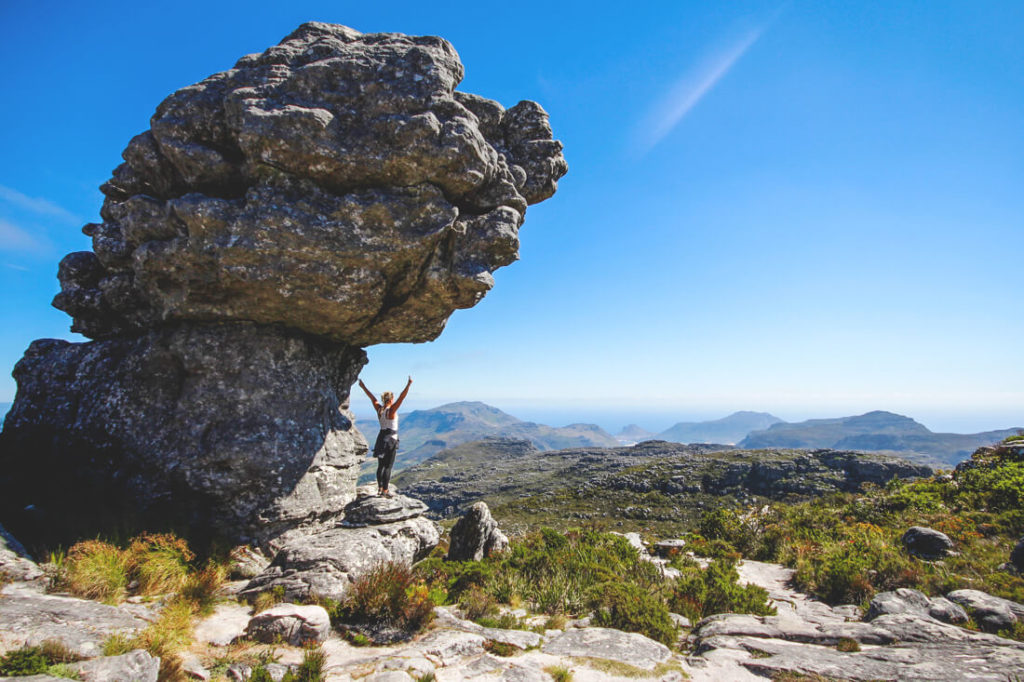
Cape Town is generally considered the safest city in South Africa due to its large number of tourists. As already mentioned, you can spend most of your time during the day in most areas just like you would in Europe. In the city, you’ll also see plenty of security personnel who are happy to help with any questions. According to locals, crime largely occurs in Cape Town’s townships.
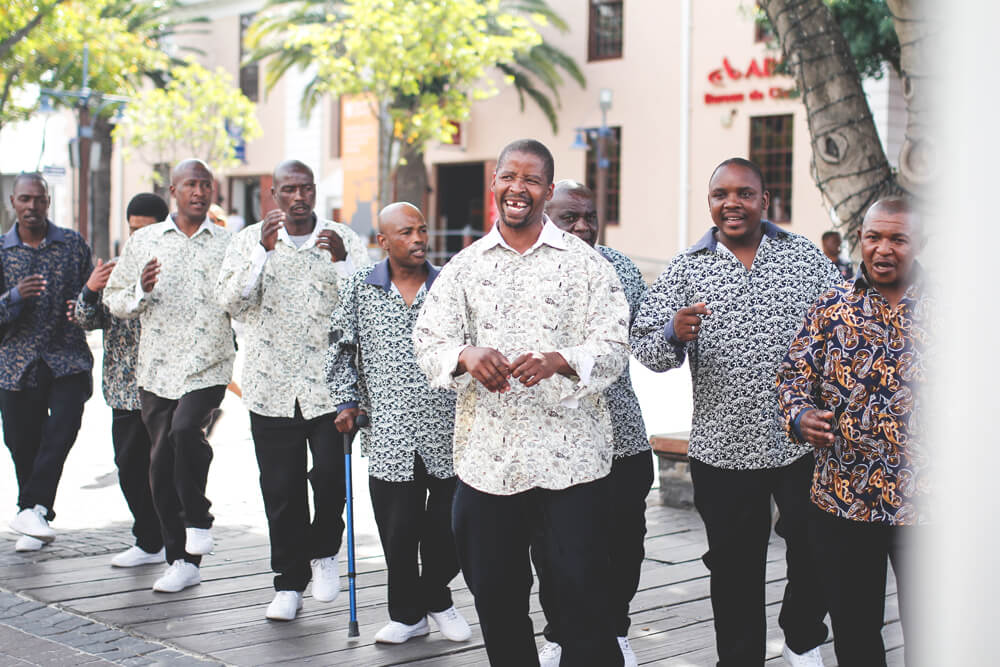
It has apparently happened before that tourists in the center of Cape Town were asked by supposed security personnel to buy a “pedestrian visa.” This is, of course, complete nonsense. In this case, don’t go to the nearest ATM (where you’re supposed to withdraw X amount), but rather go to the nearest store to fend off the thieves. Furthermore, there have been an increasing number of robberies on Table Mountain in the past. More information about this can be found here: How Cape Town’s citizens fight criminals on Table Mountain.
Traffic and road safety
When it comes to road safety, you should definitely stay focused. South Africans have traffic laws, but they don’t like to follow them. This means just be a bit smarter and more proactive, and expect other drivers to make mistakes. Especially the colorful, often overcrowded taxis do what they want and like to stubbornly push their way into the lane.
You should also not drive at night. There is always the possibility of people (including drunk people), animals, potholes, speed bumps, or unlit cars appearing on the roads. We (Bolle & Marco) have experienced this more frequently, especially in the Eastern Cape, even in broad daylight. The Federal Foreign Office even speaks of the possibility of so-called “stoning” at night. This involves throwing stones or boulders onto the road to force you to slow down and stop. This allows criminals to loot your car.
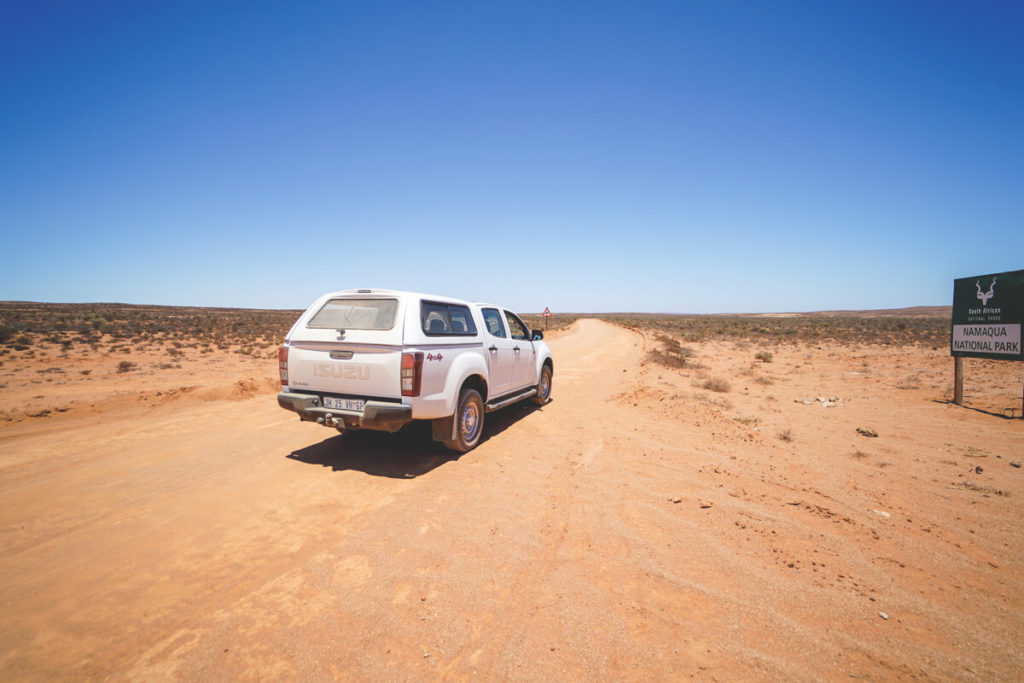
No less serious are the so-called Lightning burglaries, which we have fortunately never experienced ourselves. This supposedly happens mainly at red lights and in heavy traffic. It’s impossible to react quickly before valuables are stolen from your car. If you do, unfortunately, find yourself in an unpleasant situation, you should under no circumstances argue or become physical, but simply give the thieves what they demand. In the worst case, these criminals could even be armed.
These are perhaps a lot of clues that somehow indicate that South Africa seems very unsafe, but it’s better to heed one or two more tips and feel safe than to have a bad experience that you often associate with the country you’re traveling to. Before your trip, save the South African emergency numbers in your cell phone: Police 10 111, Ambulances 10 177 or 112.
Safety in South Africa: Corrupt Police
We’ve often heard that Travelers are occasionally stopped by police officers who are not even police officers. They still pretend to be the official police in order to extort money from you for some alleged traffic violation. They then tell you that you’ll pay less if you pay your fine in cash on the spot. Of course, there’s no receipt for this, as this is also a scam. Important for you: Fines are never paid in the middle of the street.
The Anti-Corruption Hotline (082 451 7044) was set up to report precisely such incidents. It is recommended that you ask for the police officer’s name and badge number. The “police officer” probably won’t give you any personal information, so if possible, write down the car’s license plate number. We were advised to always place the Roadside Anti-Corruption Initiative map, which you can download here, in the front of your car. This might prevent you from being stopped in the first place.
Talking to Locals
We always recommend talking to locals about this topic. Ask your accommodation provider about any special features you should be aware of. They usually know the most and can give you good tips on which areas to avoid and which not. Locals are also usually much more knowledgeable about current events. If you have a specific excursion planned, check with your accommodation and discuss the route. We also recommend a South African SIM card (e.g., from Vodacom) so you can make phone calls and be reachable in an emergency.

Conclusion on Safety in South Africa
You’ll notice that the majority of people are extremely friendly and courteous, but unfortunately, you can’t ignore crime in South Africa. If you adhere to certain behavioral rules, nothing will happen to you. Just be careful and don’t adopt European habits – this applies to the big cities as well as the rural areas and national and wildlife parks.
Even if it seems very unusual at first, you get used to double doors, fences in front of houses, alarm systems as standard in every home, and bars on the windows. Things I (Tini) have completely implemented in my life (even though it was very difficult as a European):
- Never walk around alone at night (no matter where, and especially not as a woman)
- Never carry my entire wallet with me
- It’s better to take a car or Uber than to walk
- Be vigilant at all times and in all places
In all our years, we (Bolle and Marco) have never had any negative experiences with safety in South Africa. As Tini said, you should always be careful and use common sense when traveling. If you follow these tips and advice, you are sure to have a fantastic trip in South Africa. The country and its people are wonderful, even if (like everywhere in the world) there are a few bad apples. Don’t let our advice deter you, but use them for your trip and enjoy South Africa to the fullest!